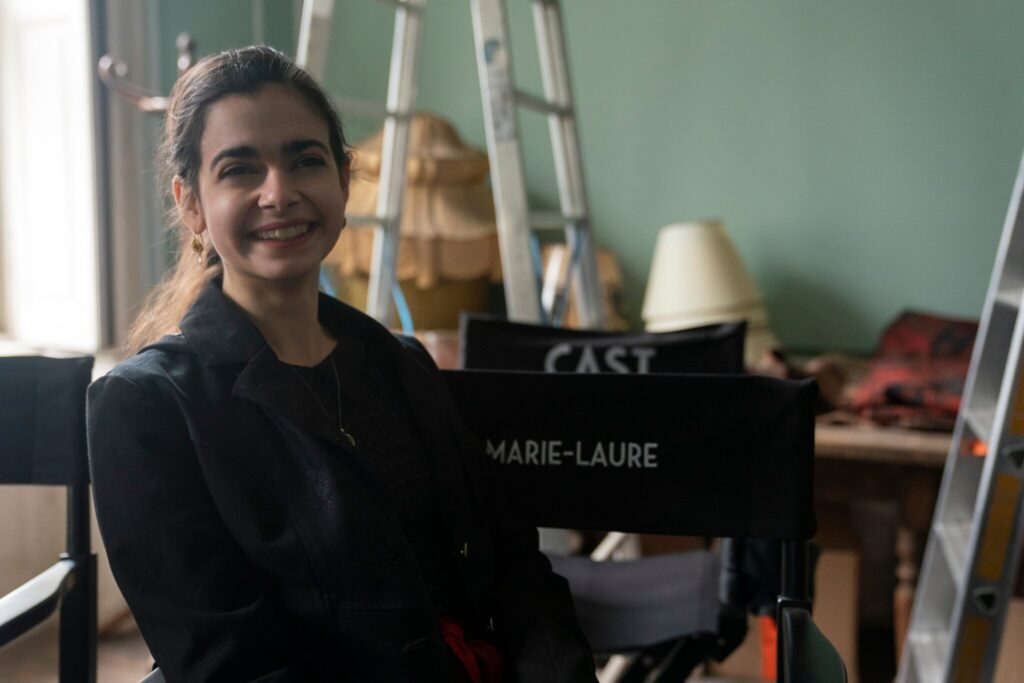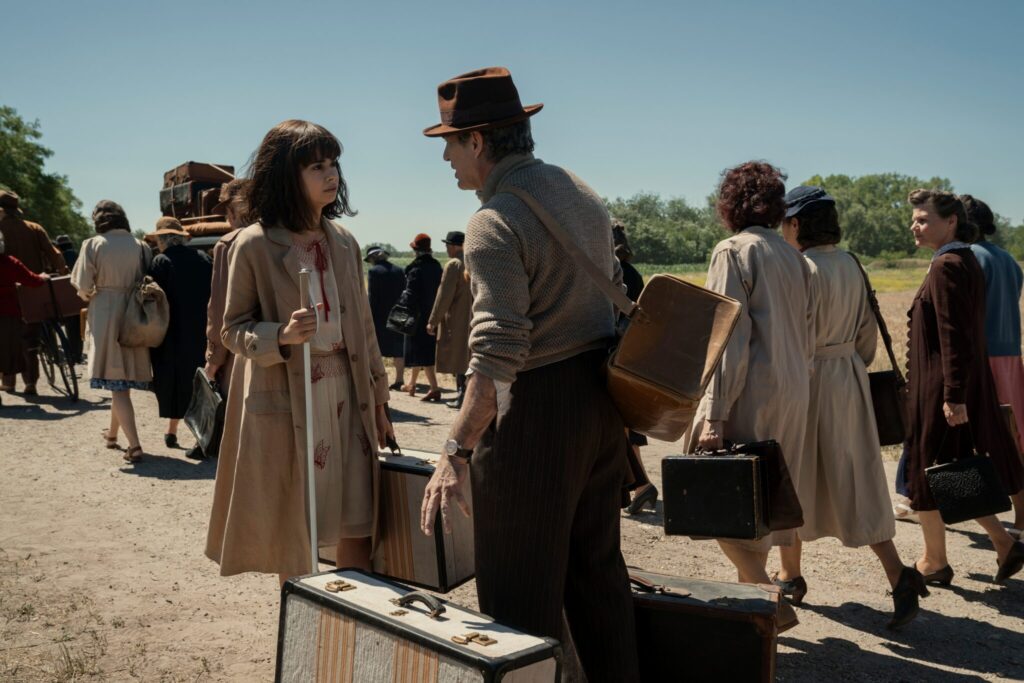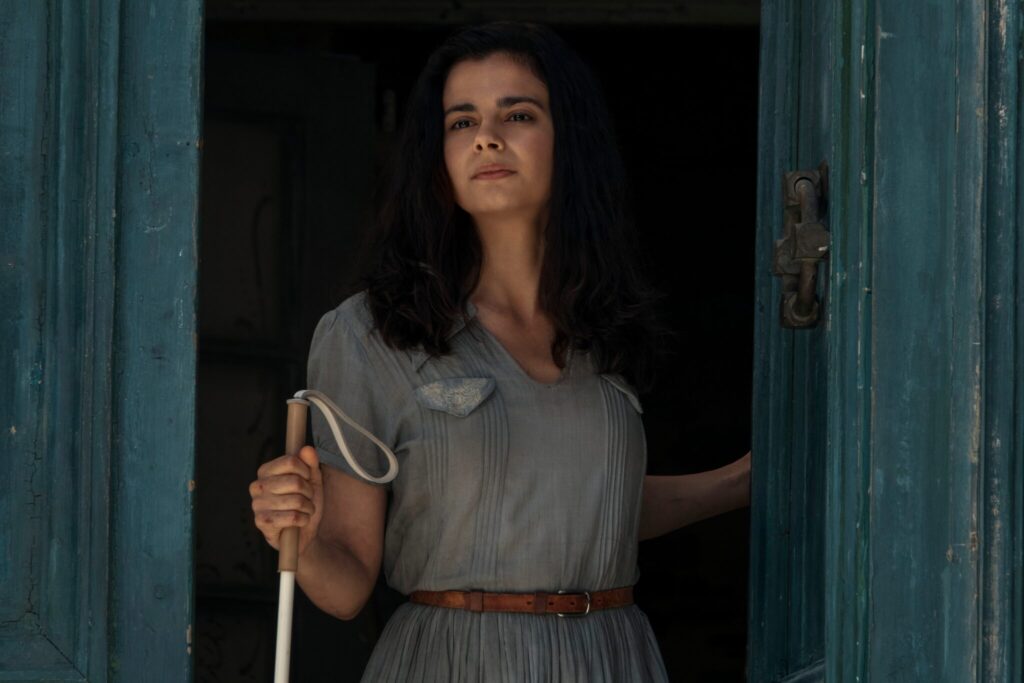Creating Authentic Representation on Film
Aria Mia Loberti
Actress, Writer, Scholar, and Disability Rights Activist
Fulbright U.S. Student to United Kingdom
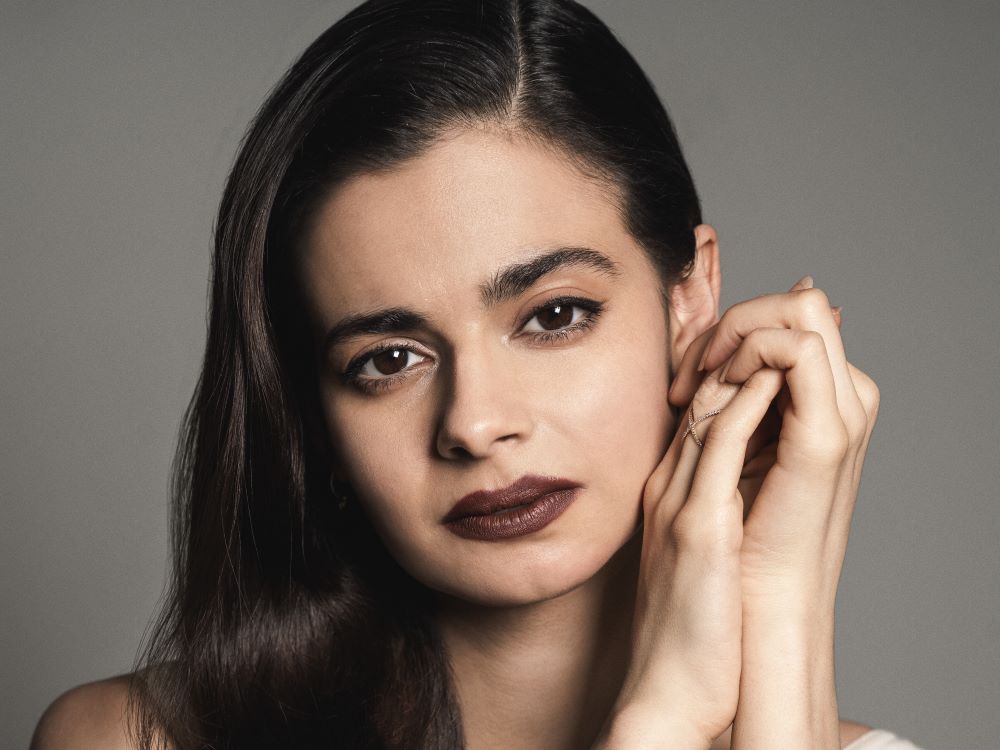
Aria Mia Loberti had just returned to the United States after a year in the United Kingdom as the recipient of a US-UK Fulbright Award when she was cast in the leading role in the Netflix adaptation of Anthony Doerr’s Pulitzer Prize-winning novel All the Light We Cannot See.
She was starting a Graduate Fellowship in Communications Arts and Sciences at Penn State when she learned from a teacher about the casting search for blind and low vision actresses. In a story worthy of its own screenplay, she was selected for the part in the four-part series from among thousands of actresses around the world. Director and Executive Producer Shawn Levy recounts the “jaw-drop moment” when he first met Loberti, who had never auditioned before and had no formal acting training.
She was chosen to portray Marie-Laure, the blind teenager at the heart of the story, alongside actors Mark Ruffalo as her father, and Hugh Laurie as her great uncle. After a whirlwind experience learning on set, Loberti has earned widespread critical acclaim and was named as a 2023 TIFF Rising Star by the Toronto International Film Festival (TIFF). She is also an emerging style icon, serving as a global brand ambassador for L’Occitane en Provence and appearing in fashion shoots for Vanity Fair and Marie Claire.
Loberti’s interpretation of a young blind woman in physically and mentally grueling wartime conditions is a testament to her talent and perseverance. She credits her Fulbright experience with preparing her for the challenges she faced in traveling to multiple countries and simultaneously learning to inhabit two new cultures: the world of cinematography and the milieu of occupied France in World War II.
Loberti has been an ardent advocate for gender equity, disability rights, and dismantling stereotypes, particularly for people who are blind or vision impaired. She was born with achromatopsia, a rare genetic eye condition that causes one to be unable to visualize color, and has very limited vision. In college, Loberti served as a youth delegate to the United Nations, spoke at the Rhode Island State House of Representatives and delivered a TEDx talk. She was an honors graduate from the University of Rhode Island, where she majored in Philosophy, Communication, and Political Science, and minored in Rhetoric and in Ancient Greek. She connected with Guide Dogs for the Blind while in college, and has continued her advocacy by working with the organization as a spokesperson.
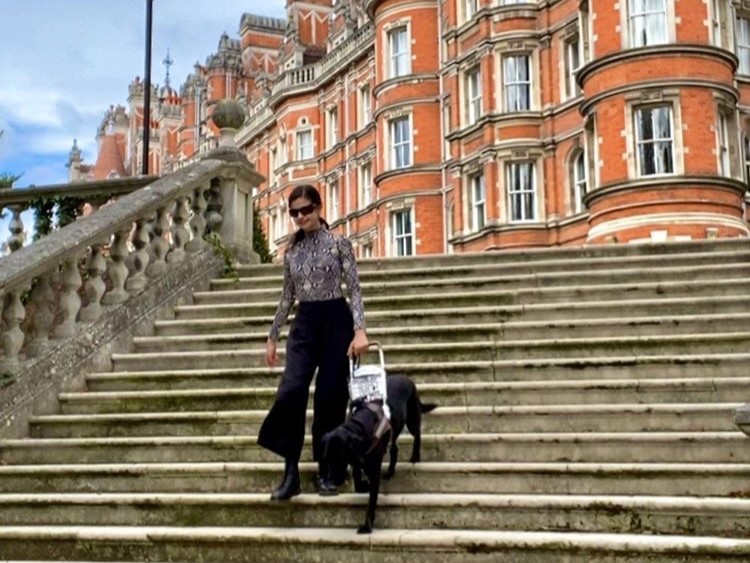
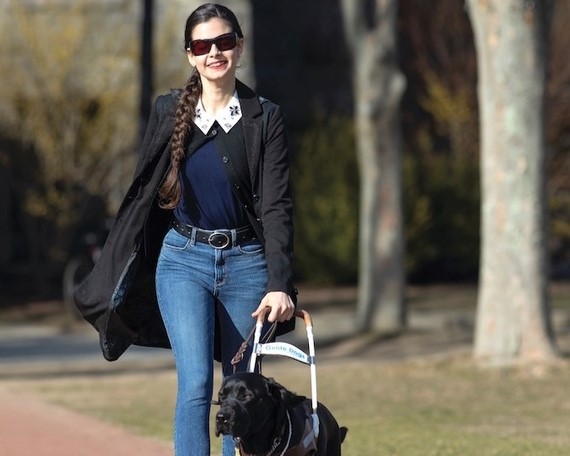
She says that being selected for a Fulbright after she graduated was a “dream come true.” She knew and loved ancient languages and wanted to learn more about how the current culture, politics, and mindset have been forged by ancient political and social theory. Loberti’s Fulbright year at Royal Holloway, University of London, to earn a master’s in rhetoric gave her the opportunity to become a better writer and researcher through their impressive faculty and “some of the best libraries and resources in the world when it comes to the field of ancient history of communication.” She had never lived abroad before her Fulbright, and had only traveled abroad for a few short academic trips. Her experience living in London along with her Guide Dog, Ingrid, made it much less daunting to relocate to Hungary and then to France on short notice to film the series. Her research in rhetoric also prepared her well for her newfound role and career. “It honestly surprised me how much my academic work helped me then, and helps me every single day now,” she said. “At its core, my research was about how words have power to shape our current reality. And that in and of itself is the power of storytelling.”
Loberti articulates that her Fulbright research on the ancient world is applicable to the present day, and particularly her work as an actress. “We are creating a language, essentially, about authentic representation in storytelling and about blindness and low vision that doesn’t exist in the public consciousness,” Loberti explained. She notes that “a hundred years of motion pictures, and generations of stories in other mediums, have not included this community. As such, in beautiful pieces of art, stigmas grew and spread.”
Loberti says that All The Light We Cannot See “challenges those stigmas by presenting a truthful and authentic blind character in the 1940s — the first production of this scope to allow a character, especially a lead, who is blind to be portrayed by an actor who may share that lived experience.” Loberti is proud to embody the representation that she never had as a child. She hopes the world can come to understand that “blindness is a spectrum and is often not observable except under certain circumstances” and that “blindness can be celebrated as a culture, not as something to be questioned or pitied.”
As an advocate and as an actor, she aims to “break down barriers that may be in place, quell stereotypes that still exist, and open doors for others to pursue their dreams.” She noted that she “would not be nearly as well-equipped to try to achieve those goals” if Fulbright had not provided the immersive multicultural experience to study ancient rhetoric.
Loberti encourages aspiring Fulbrighters to embrace imperfection, and write and speak from the heart. “Sometimes the path you assume you’re going to follow is not the one that will make you happiest. Be open to taking big leaps into the unknown. You never know where you might land! If you feel something in your soul, go do it.”
